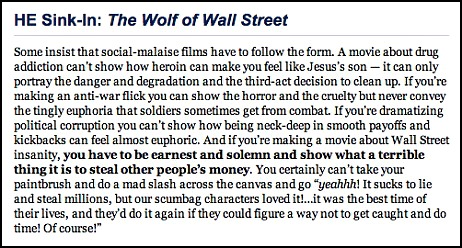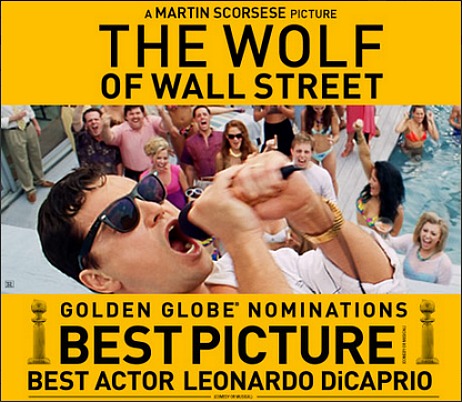It’s time to rectify the 1959 Oscars once and for all. Better late than never. The winners of record will still retain their places in history, of course, but 61 years have passed, new perspectives have emerged, and it’s time to ratify the new deal. But without being too rigid-minded.
Login with Patreon to view this post
Until this morning in Caye Caulker, sitting before a fan in our little teal and mustard-colored cabana, I had never read Liesel Banner’s detailed account of Marilyn Monroe’s four-day visit to Korea in February 1954. Nicely written, well researched. It was posted on history.net in the winter of 2020, whatever that actually means.
Yes, the Korean armistice had been signed in July 1953 but there were still tens of thousands of U.S. troops policing the situation and (be honest) getting loaded on 3.2 beer and visiting brothels. 36,000 Americans died in action in Korea; more than 100,000 were wounded.
Excerpt: “Monroe’s tour in Korea had been an unqualified success, even though she came down with a bad case of bronchial pneumonia from her exposure to the icy conditions there.
“Those four carefree days not only lifted the spirits of the thousands of homesick young soldiers who saw her but also gave Monroe the genuine outpouring of love she had always craved. Her one-woman performances revealed her true talents and warm personality. ‘I never really felt like a star,’ she told her acting coach, Lotte Goslar, after she returned to the States. ‘Not really, not in my heart. I felt like one in Korea. It was so wonderful to look down and see all those young fellows smiling up at me. It made me feel wanted.”
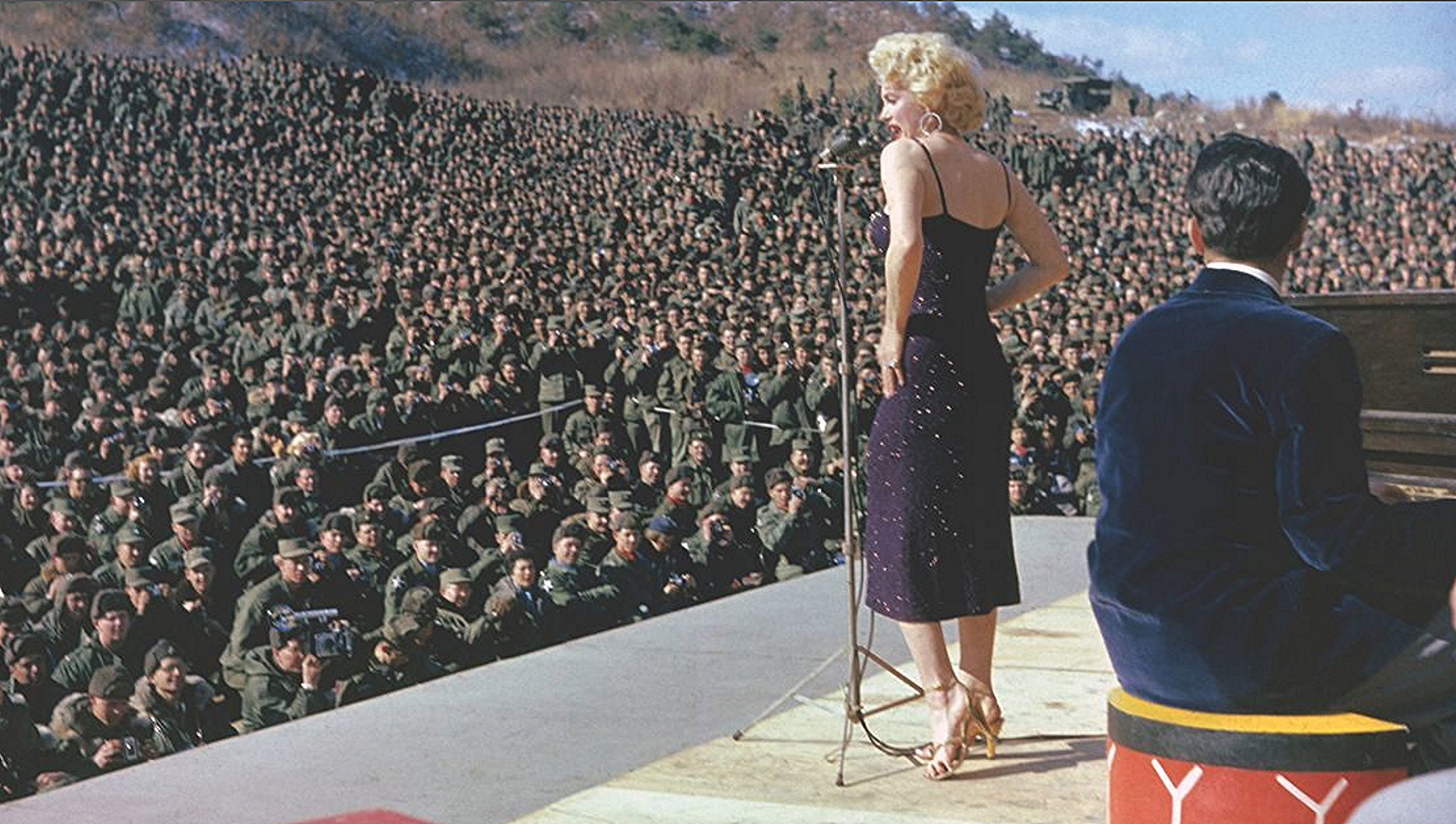
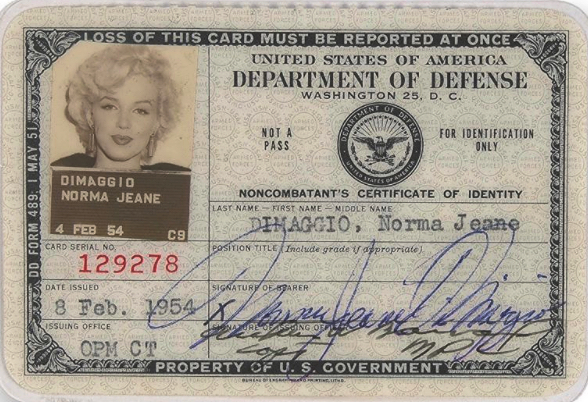
I have this notion that Jennifer Lawrence has been half-flatlining over over the last seven or eight years. She’s been in some popular films (Hunger Games, X-Men franchise installments), a couple of well-reviewed David O. Russell films (American Hustle, Joy), a morally repulsive stinker (Passengers), a brilliant Darren Aronofsky smarthouse horror classic (mother!) and a weird disappointment (Red Sparrow).
Alas, none of these have really throbbed and zapped like her early-Obama-era success d’estime Winter’s Bone, and certainly never matched her career-peak performance in Silver Linings Playbook, for which she won a Best Actress Oscar. Eight, nine years ago.
The last time I even thought about Lawrence was when I was complaining about the spreading neck beard worn by her husband, Cooke Maroney.
My general feeling is that she needs to get back on it, strike sparks, generate currents, go for the gusto.
Lawrence has two films coming out later this year, but only one she’s starring in — Lila Neugebauer and Elizabeth Sanders‘ Red White and Water (A24), a war-wound recovery drama which shot during the summer of ’19 in the New Orleans area.
The other is Adam McKay‘s Don’t Look Up, a star-studded sci-fi ensemble piece in which she costars with Leonardo DiCaprio, Cate Blanchett, Rob Morgan, Meryl Streep, Jonah Hill, Timothée Chalamet and Ariana Grande. (Yes, the above “teaser” is a fake, fan-made thing.)
In the spring of ’19 Collider‘s Jeff Sneider reported that Red, White and Water “will find Lawrence playing a U.S. soldier who suffers a traumatic brain injury in Afghanistan and struggles to recover back home.”
“Scott Rudin and Eli Bush are producing alongside Lawrence and her Excellent Cadaver partner Justine Polsky. Atlanta star Brian Tyree Henry stars opposite Lawrence. Neugebauer made her Broadway debut last year directing the revival of Kenneth Lonergan’s The Waverly Gallery starring Elaine May and Lucas Hedges, and she also helmed an episode of the HBO anthology series Room 104.”

A little more than three years after Steven Spielberg announced an intention to produce a version of Stanley Kubrick‘s Napoleon, HBO has announced it will pool forces with Spielberg to make the historical biopic as a miniseries. Beasts of No Nation and True Detective helmer Cary Fukunaga is in talks to direct the sprawling tale, which I’m guessing will be a four- or six-parter.
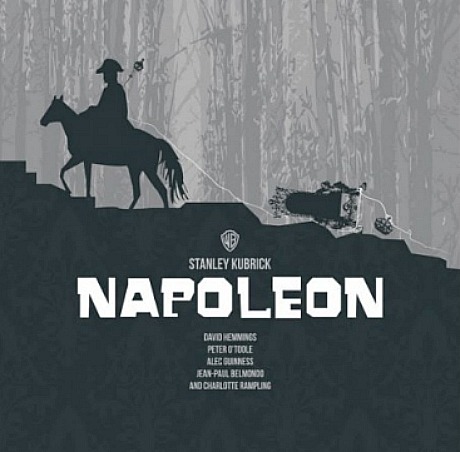
Spielberg announced announced his support of the project on or about 3.3.13. Here‘s what I wrote that day:
Kubrick’s Napoleon history is common knowledge. He began work on Napoleon in 1968 just after 2001: A Space Odysssey was finished, and had completed a screenplay draft by July 1969. But MGM, which had agreed to finance, got scared about the film’s earning potential and pulled out.
I’ve read Kubrick’s Napoleon screenplay (the one dated 9.29.69), which I think is the same version contained in “Stanley Kubrick’s Napoleon: The Greatest Movie Never Made,” which Tashen published in 2011.
A German Kubrick site (which has English translation) concurs about the intensive ’68 to ’69 Napoleon period. Kubrick’s Napoleon history is also summarized in an 11.19.12 Andrew Biswell piece in the Telegraph.
I do the same kind of easy-default Sundance Film Festival spitballing every December. I checkmark the titles, directors and actors I know or trust on some level and work outward from there. Per longstanding tradition, I’ll be able to see around 20 to 25 films during my nine days in Park City, depending on stamina and whatnot. (The festival runs from 1.21 to 1.31.) I’m naturally looking for tips from anyone who knows anything about potentially cool obscuros. So here goes with the boldfacing primes vs. shoulder-shruggers — so far I’ve got 20 prime titles, and that’s not including any Dramatic Competition titles:

PRIME PREMIERES:
Ali & Nino / United Kingdom (Director: Asif Kapadia, Screenwriter: Christopher Hampton) — Muslim prince Ali and Georgian aristocrat Nino have grown up in the Russian province of Azerbaijan. Their tragic love story sees the outbreak of the First World War and the world’s struggle for Baku’s oil. Ultimately they must choose to fight for their country’s independence or for each other. Cast: Adam Bakri, Maria Valverde, Mandy Patinkin, Connie Nielsen, Riccardo Scamarcio, Homayoun Ershadi. World Premiere.
Certain Women / U.S.A. (Director: Kelly Reichardt, Screenwriter: Kelly Reichardt based on stories by Maile Meloy) — The lives of three woman intersect in small-town America, where each is imperfectly blazing a trail. Cast: Laura Dern, Kristen Stewart, Michelle Williams, James Le Gros, Jared Harris, Lily Gladstone. World Premiere.
Complete Unknown / U.S.A. (Director: Joshua Marston, Screenwriters: Joshua Marston, Julian Sheppard) — When Tom and his wife host a dinner party to celebrate his birthday, one of their friends brings a date named Alice. Tom is convinced he knows her, but she’s going by a different name and a different biography—and she’s not acknowledging that she knows him. Cast: Rachel Weisz, Michael Shannon, Kathy Bates, Danny Glover. World Premiere.
Frank & Lola / U.S.A. (Director and screenwriter: Matthew Ross) — A psychosexual noir love story—set in Las Vegas and Paris—about love, obsession, sex, betrayal, revenge and, ultimately, the search for redemption. Cast: Michael Shannon, Imogen Poots, Michael Nyqvist, Justin Long, Emmanuelle Devos, Rosanna Arquette. World Premiere.
I don’t want to give Russell Crowe a hard time over his direction of The Water Diviner (Warner Bros., 4.24), a melancholy, handsome period drama about love, loss and grief. Okay, with pretty landscapes and occasional action scenes. I felt as if it was always trying to soak me with emotion. Or yank it out of me. I found it more meandering than mesmerizing but let’s be gracious and acknowledge that Crowe tried like hell to be Peter Weir here. Give him a B for effort at least. There’s always the next time.
On top of which Crowe gives a balmy, kind-hearted performance as an Australian farmer, Joshua Connor, who’s looking for some kind of closure over the loss of his three sons who were killed during the terrible battle of Gallipoli, which took the lives of 46,000 Allied soldiers (over 8000 Australians) and wounded 250,000.
The film is basically about Connor travelling to Turkey in 1919 to find his son’s bodies and if possible lay them to rest with a prayer, but what can happen with all three having suffered so horribly with so little to show? We know the answer from the trailer. This recently widowed man of 50 will fall in love with an alluring Turkish woman (Olga Kurylenko) who’s a good 20 years younger. But right away this feels a bit off. The problem (and I’m not trying to be an asshole here) is that Crowe has become too girthy to play a romantic lead. Maximus has morphed into Peter Ustinov in Spartacus, and grown a thatch of gray hair in the bargain. I know he wasn’t this gutty in Darren Aronofsky‘s Noah so you tell me.

It’s obvious that Robert Redford‘s role in this possibly tolerable Marvel film allows him to play it straight and modest and sensible and so on. He isn’t wearing spandex or a helmet or throwing lightning bolts out of his fingers. So all indications are that Captain America: Winter Solder is in no way, shape or form “Redford’s Norbit.” In a Best-Actor-race context, I mean.
Steven Spielberg has told a Canal Plus interviewer that he’s developing Stanley Kubrick‘s Napoleon screenplay for production as a TV miniseries. Which is cool. But he says in the interview that Kubrick “wrote the [Napoleon] script in 1961, a long time ago.” Sorry but nope. Off by seven years, I’m afraid.


Note: The Canal Plus embed code is crap, but watch the video here. Spielberg’s comments begin around the 9:20 mark.
Kubrick began work on Napoleon in 1968 just after 2001: A Space Odysssey was finished, and had completed a screenplay draft by July 1969. Perhaps Spielberg was thinking of The German Lieutenant, a never-produced WWII drama that Kubrick co-wrote with Richard Adams in the early ’60s?
Kubrick’s Napoleon history is common knowledge. I’ve read Kubrick’s Napoleon screenplay (the one dated 9.29.69), which I think is the same version contained in “Stanley Kubrick’s Napoleon: The Greatest Movie Never Made,” which Tashen published in 2011. This German Kubrick site (which has English translation) concurs about the intensive ’68 to ’69 Napoleon period. Kubrick’s Napoleon history is also summarized in an 11.19.12 Andrew Biswell piece in the Telegraph.
Another thing that Spielberg possibly misunderstands (he certainly doesn’t mention it) is that in various ways (tonally, stylistically, attitude-wise) we’ve already seen Kubrick’s Napoleon. It’s called Barry Lyndon.
A reading of the 9.29.69 screenplay makes it fairly obvious that Napoleon would have had the same vibe as Barry Lyndon, and been spoken the same way and framed and paced the same way. Okay, the lead character would be a determined egomaniacal genius instead of an amoral Irish lout and Napoleon would have more than one battle scene, but beyond these and other distinctions we’re talking the same line of country. Everything Kubrick desperately wanted to accomplish or put into Napoleon he put into Lyndon — simple.
The Biswell piece quotes a note written by Kubrick in 1968, in which he states that “newly developed fast photographic lenses would allow him to film interiors using ordinary window light — or even candlelight — which, he said, ‘will look much more beautiful and realistic than artificial light.'” Which of course he delivered in Barry Lyndon.
Remember the scene when Ryan O’Neal‘s Lyndon asks the pretty blonde fraulein if he could pay her for a meal, and then the follow-up scene inside her cottage when they carefully and delicately get around to talking about him staying that night and being her lover, etc.?
Consider this scene from Kubrick’s Napoleon — same tone, same idea, same sexual undercurrent. A lonely soldier, a poor young woman, etc.
EXT. LYON STREET – NIGHT
It is a witheringly cold winter night, in Lyon. People, bundled up to the eyes, hurry along the almost deserted street, past empty cafes which are still open. Napoleon, hands deep in his pockets, shoulders hunched against the cold, passes a charming, young street-walker, about his own age. He stops and looks at her, uncertainly. A large snowflake lands on her nose which makes him smile.
GIRL: Good evening, sir.
NAPOLEON: Good evening, Mademoiselle.
GIRL: The weather is terrible, isn’t it, sir?
NAPOLEON: Yes, it is. It must be one of the worst nights we have had this winter.
GIRL: Yes, it must be.
Napoleon is at a loss for conversation.
NAPOLEON: You must be chilled to the bone, standing out of doors like this.
GIRL: Yes, I am, sir.
NAPOLEON: Then what brings you out on such a night?
GIRL: Well, one must do something to live, you know. And I have an elderly mother who depends on me.
NAPOLEON: Oh, I see. That must be a great burden.
GIRL: One must take life as it comes. Do you live in Lyon, sir?
NAPOLEON: No, I’m only here on leave. My regiment is at Valence.
GIRL: Are you staying with a friend, sir?
NAPOLEON: No…I have a…room…at the Hotel de Perrin.
GIRL: Is it a nice warm room, sir?
NAPOLEON: Well, it must be a good deal warmer than it is here on the street.
GIRL: Would you like to take me there, so that we can get warm, sir?
NAPOLEON: Uhhn…yes, of course. If you would like to go there. But I have very little money.
GIRL: Do you have three francs, sir?

I once spoke briefly to Angelina Jolie on the set of Salt, and I remember having to fight these odd feelings of unworthiness that arose from her being stunningly beautiful and my being…well, what I am. This happened again yesterday for a minute or two when she walked into room #1414 at the Four Seasons hotel to chat about In The Land of Blood and Honey, her Serb-Muslim love story-war drama that opens on 12.23. But I eventually won the battle and was able to focus on her words.

Here‘s what she was asked and what she said during our 28-minute session.
Jolie is very sharp. She thinks and talks fast, knows the world, quickly assembles and associates and draws lines between the dots. Now and then she’ll express herself (at least in front of journalists) with haphazard, on-the-fly sentences and half-formed thoughts, but nobody speaks as clearly and calmly as they’d like then the digital recorders are turned on.
And she is an ordered and disciplined type. The film itself — easily the equal of Michael Winterbottom‘s A Mighty Heart, and a much better thing, quality-wise, than most of her acting vehicles over the last ten years — makes that clear. I absolutely respect and admire In The Land of Blood and Honey as well as her efforts to make it as first-rate as possible. This is a very tight and well-executed drama — no shovelling, no exaggeration, no sensationalism. Just straight and true and real.
Set within the Serb-Muslim-Croat conflict of the early to mid ’90s, ITLOBAH isn’t a disparate-lovers story as much as a portrait of the very fine lines between a relationship that is lust one minute, safety and security the next, and always with a current of sadism and sadomasochism. The basic logline — “a Bosnian woman (Zana Marjanovic) submits to the tender passions of her Serbian captor (Goran Kostic)” — isn’t the half of it.
Jolie vision quote #1: “We want people to pay attention and want for timely intervention, some kind of dialogue, that if we could make people feel that in a visceral way…while they’re watching it, they’re angry and it’s coming, that would be the completion that they would walk away with. We tried to make a traditional film with characters and dialogue. [But] you can’t soften this kind of war, and the reality is that the four-and-a-half-hour cut was a lot worse [in the sense that] some people really could not handle it. If you’re watching a film about war, you should get a sense of what it’s really like.

Jolie, Jon Voight prior to Thursday’s In The Land of Blood and Honey premiere.
Jolie vision quote #2: “I remembered Bosnia-Herzogovina, it was my generation…I remember where I was at that time…it happened in Europe and I [asked myself] why do I not know very much about this? The more I researched it the more compelled I was to make it. People are still healing from this process, and it ‘s important not to [forget it]. Once the conflict is over the attention goes elsewhere, and proper healing is not done.
How the film came together: “I didn’t set out to be a director. I wrote it for myself because it was an experiment for me…to give myself this homework, and then [there was a story and] the cast came together and things started to happen and it somehow became real….but I wasn’t in the region and in many ways they directed me. In many ways they told me. I would ask ‘did we get this right? Did this sound right? Tell me how your neighbor’s baby died.’ I’ve had so many amazing directors in the past, and Clint [Eastwood] told me to have a good crew of people…a good creative family and no dramas. Talented but a nice person. We didn’t want not nice people [on the crew]. I wanted a family. And I learned from Michael Winterbottom [something].
On the differences between the English-language and Serb-Croatian version: “They’re two minutes off, actually. They’re the same movie but they feel different. I wrote it in English because I had to. We had it translated to make sure it was fair and balanced. They all spoke English, and those who didn’t [speak English] learned their lines pheonetically. We wanted it to be authentic, and yet….for us it’s not just about making a movie but about getting a message out. Maybe this theatre in this state say they won’t buy a foreign language film and we’ll say, okay, we have this [English-language] version also, can you take that? And then…the UK has bought the American, but maybe they’ll change their minds. The DVD [might] have both versions. I wish I could shout from the rooftops how good these [actors] are. I gave so much respect for them. I would like people to see this film just for that.
On the physical and logistical demands of shooting: “[The shoot was] very fast. We had 41 days and $12 million dollars, and we had three and a half years of war to cover and many, many different seasons. I learned a lot about how much snow costs. We used to joke about how ‘I want to snow this whole area’ and they’d say, ‘Well, that is $100,000 worth of snow’ and I’d say, ‘Well, what’s $20,000 dollars worth?’ And everything was doubled [because of the two versions]. Everything was doubled. We had to cut the script as we went. We had to invent things. But I kind of like working like that.

On directing: “I love being on the other side of the camera. I love watching an actor do an extraordinary job, and protecting her emotions and showing her talent, and working with the crew and living in this world inside the movie. It’s a different way or working, and I think I prefer it [to acting]. I wasn’t the center of attention. I was the buddy in the corner with a paper pad and a pencil, and it was lovely.”
On the reported Afghanistan project she’s working on and may (or may not) direct down the road: “Between me and Graham, it was this idea. As he writes, it was kind what do you have and I said I have this thing. No one has seen it. It’s just something I wrote and i have on my desk, and now it’s become something that I’m talking about it. But it stems from…I travelled to Pakistan first, two weeks before September 11th and I visited Aghan people there as they were being [evacuated] and on the buses in Kabul and over the last ten years I’ve tracked some families…and on the other side of it I visited a lot of soldiers, wounded solders in Ramstein and Walter Reade, and met a lot of female soldiers…and the question that frustrates me is that they say they’re not in combat and yet they’re dying in combat, and this level of respect for women in the field, and what a female solider goes through, relationships between men and women when women are at war, and what it is for a mother to leave her children…so it’s kind of a study in that, and that’s how I came at it, and I don’t know…I dont know if I’ll ever show it to anybody. But that’s [what it is].”
So I won’t be attending the Telluride or Venice film festivals (as usual) but I’ll be doing Toronto and New York. The latter will be mostly about catching Roman Polanski‘s Carnage, possibly Tinker, Tailor, Soldier, Spy, that 2.76 to 1 Ben-Hur screening at Alice Tully Hall, My Week With Marilyn and possibly Martin Scorsese‘s George Harrison: Living in the Material World. Wait…did I read something about Clint Eastwood‘s J. Edgar possibly preeming there?
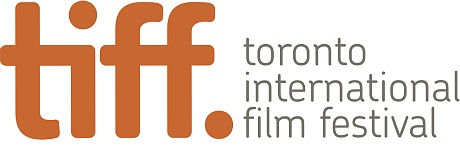
And now it’s time to prune down the 2011 Toronto offerings to a manageable slate of 20 or 25, which is all I ever manage to see when I’m there. I’ve listed them in order of the most exciting and essential and on down. I’m ignoring a lot of well-made films, I’m sure. Please advise if I’ve tossed anything truly substantial:
1. The Descendants (d: Alexander Payne)
2. The Ides of March (d: George Clooney)
3. A Dangerous Method (d: David Cronenberg)
4. Moneyball (d: Bennett Miller)
5. Albert Nobbs (d: Rodrigo Garcia)
6. Shame (d: Steve McQueen)
7. Butter (d: Jim Field Smith)
8. The Oranges (d: Julian Farino)
9. Pearl Jam Twenty (d: Cameron Crowe);
10. Take this Waltz (d: Sarah Polley)
11. 50/50 (d: Jonathan Levine)
12. 360 (d: Fernando Meirelles)
13. Anonymous (d: Roland Emmerich)
14. Friends With Kids (d: Jennifer Westfeldt)
15. Machine Gun Preacher (d: Marc Forster);
16. Rampart (d: Oren Moverman)
17. Peace, Love & Misunderstanding (d: Bruce Beresford)
18. W.E. (d: Madonna)
19. The Hunter (d: Daniel Nettheim)
20. Jeff, Who Lives at Home (d: Jay & Mark Duplass)
21. Killer Joe (d: William Friedkin)
22. Trishna (d: Michael Winterbottom)
23. Woman in the Fifth (d: Pawel Pawlikowski)
24. Hick (d: Derick Martini)
25. Coriolanus (d: Ralph Fiennes)
26. Dark Horse (d: Todd Solondz)
Oh, God, I forgot the documentaries. Okay, here’s a list of preferences:
1. Wim Wenders‘ Pina
2. Jafar Panahi and Mojtaba Mirtahmasb‘s This Is Not A Film
3. Morgan Spurlock‘s Comic-Con: Episode IV — A Fan’s Hope
4. Rithy Panh‘s Duch, Master of the Forges of Hell
5. Jonathan Demme‘s I’m Carolyn Parker: The Good, the Mad, and the Beautiful.
6. Werner Herzog‘s Into The Abyss
7. Stephen Kessler‘s Paul Williams Still Alive
8. Nick Broomfield and Joan Churchill‘s Sarah Palin — You Betcha
9. Dan Lindsay and TJ Martin‘s Undefeated.
The most conspicuous absences among the 2011 Toronto Film Festival’s just-announced gala and special presentation slate are Tomas Alfredson‘s Tinker Tailor Soldier Spy and Roman Polanski‘s Carnage. Both are set to play at the partially overlapping Venice Film Festival. Deadline‘s Mike Fleming has heard Tinker may be the opening-night debut at the subsequent New York Film Festival, which would explain that particular situation. Hey, Scott and Todd…any truth to that?
More TIFF titles and programs are set to be announced so this is just the opening salvo. (I’m presuming that Martin Scorsese‘s 208-minute George Harrison doc will be announced down the path; ditto Ami Canaan Mann‘s Texas Killing Fields.) This is going to be a very high-throttle, heavy-star-wattage, Oscar-launchy festival. Here, alphabetically, are most of them:
Galas: Albert Nobbs (d: Rodrigo Garcia, w/ Glenn Close); Butter (d: Jim Field Smith, w/Jennifer Garner, Hugh Jackman, Ty Burrell); A Dangerous Method (d: David Cronenberg); The Ides of March (d: George Clooney); The Lady (d: Luc Besson); Moneyball (d: Bennett Miller); Peace, Love, & Misunderstanding (d: Bruce Beresford, w/ Jane Fonda, Catherine Keener, Chace Crawford, Elizabeth Olsen); Take this Waltz (d: Sarah Polley); W.E. (d: Madonna).
Special Presentations, Part 1: 50/50 (d: Jonathan Levine); 360 (d: Fernando Meirelles, w/ Jude Law, Anthony Hopkins, Rachel Weisz, Ben Foster); The Artist (d: Michel Hazanavicius); Americano (d: Mathieu Demy); Anonymous (d: Roland Emmerich); A Better Life (d: Cedric Khan); Burning Man (d: Jonathan Teplitzky); Chicken with Plums (d: Marjane Satrapi, Vincent Paronnaud); Coriolanus (d: Ralph Fiennes); Dark Horse (d: Todd Solondz….another dysfunctional weirdo piece?); The Deep Blue Sea (d: Terence Davies)
Special Presentations, Part 2: The Descendants (d: Alexander Payne); Drive (d: Nicolas Winding Refn); Elles (d: Malgoska Szumowska); The Eye of the Storm (d: Fred Schepisi w/ Geoffrey Rush, Charlotte Rampling); Friends With Kids (d: Jennifer Westfeldt, w/ Kristen Wiig, Megan Fox, Jon Hamm, Maya Rudolph, Edward Burns); Habemus Papam (d: Nanni Moretti); Hick (d: Derick Martini, w/ Blake Lively, Chloe Moretz, Alec Baldwin, Juliette Lewis); The Hunter (d: Daniel Nettheim); Jeff, Who Lives at Home (d: Jay & Mark Duplass); Killer Joe (d: William Friedkin); Like Crazy (d: Drake Doremus).
Special Presentations, Part 3: Machine Gun Preacher (d: Marc Forster); Melancholia (d: Lars von Trier); The Oranges (d: Julian Farino); Pearl Jam Twenty (d: Cameron Crowe); Rampart (d: Oren Moverman, w/ Woody Harrelson, Anne Heche, Cynthia Nixon, Sigourney Weaver, Ice Cube, etc.); Salmon Fishing in the Yemen (d: Lasse Hallstrom); Shame (d: Steve McQueen, w/ Michael Fassbender, Carey Mulligan); A Simple Life (d: Ann Hui); The Skin I Live In (d: Pedro Almodovar); Take Shelter (d: Jeff Nichols); Ten Year (d: Jamie Linden, w/ Channing Tatum, Rosario Dawson, Justin Long, Kate Mara, etc.); Trishna (d: Michael Winterbottom, w/ Freida Pinto and Riz Ahmed — an Indian Tess of the d?Urbervilles); Twixt (d: Francis Ford Coppola); Tyrannosaur (d: Paddy Considine); We Need to Talk About Kevin (d: Lynne Ramsay w/ Tilda Swinton); Woman in the Fifth (d: Pawel Pawlikowski w/ Ethan Hawke, Kristin Scott Thomas).

<div style="background:#fff;padding:7px;"><a href="https://hollywood-elsewhere.com/category/reviews/"><img src=
"https://hollywood-elsewhere.com/wp-content/uploads/2019/08/reviews.jpg"></a></div>
 Really Nice Ride
Really Nice RideTo my great surprise and delight, Christy Hall‘s Daddio, which I was remiss in not seeing during last year’s Telluride...
More » Live-Blogging “Bad Boys: Ride or Die”
Live-Blogging “Bad Boys: Ride or Die”7:45 pm: Okay, the initial light-hearted section (repartee, wedding, hospital, afterlife Joey Pants, healthy diet) was enjoyable, but Jesus, when...
More » One of the Better Apes Franchise Flicks
One of the Better Apes Franchise FlicksIt took me a full month to see Wes Ball and Josh Friedman‘s Kingdom of the Planet of the Apes...
More »
<div style="background:#fff;padding:7px;"><a href="https://hollywood-elsewhere.com/category/classic/"><img src="https://hollywood-elsewhere.com/wp-content/uploads/2019/08/heclassic-1-e1492633312403.jpg"></div>
- The Pull of Exceptional History
The Kamala surge is, I believe, mainly about two things — (a) people feeling lit up or joyful about being...
More »  If I Was Costner, I’d Probably Throw In The Towel
If I Was Costner, I’d Probably Throw In The TowelUnless Part Two of Kevin Costner‘s Horizon (Warner Bros., 8.16) somehow improves upon the sluggish initial installment and delivers something...
More » Delicious, Demonic Otto Gross
Delicious, Demonic Otto GrossFor me, A Dangerous Method (2011) is David Cronenberg‘s tastiest and wickedest film — intense, sexually upfront and occasionally arousing...
More »


